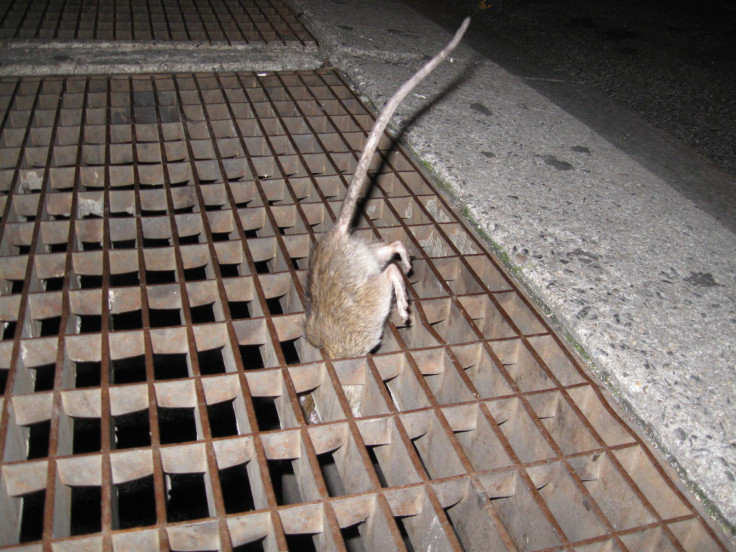Rats in New York carry fleas capable of transmitting the Black Death

Rats in New York carry species of fleas capable of transmitting bubonic plague, a study of rodent populations has shown.
Researchers at Cornell and Colombia University studied 133 rats found on the streets of New York.
On them, they found over 6,500 specimens of five well-known species of flea, lice and mites – including over 500 Oriental rat fleas known for their role in transmitting the Black Death.
However, an outbreak of plague is not about ravage New York. The flea species found is missing the pathogen itself – should it somehow pick it up, then there would be cause for concern.
Matt Frye, an urban entomologist with Cornell University's New York State Integrated Pest Management, said: "If these rats carry fleas that could transmit the plague to people, then the pathogen itself is the only piece missing from the transmission cycle."
Speaking to IBTimes UK, he added: "We did not detect plague either in the rodents themselves or in the flea. To our knowledge, plague is not present in New York. Similar studies have been carried out in Los Angeles, Vancouver and Baltimore and none have found plague."
Frye said the team was surprised at the findings. He said: "We thought we might find the fleas because they are known to be found on rodents throughout the world, but we were not expecting to find that number – that was quite a few. Especially for metropolitan areas where people are living with large rodent populations, it tells us we need to be looking at this more closely – both rodent populations and parasite populations."

The findings, he said, are comparable with other metropolitan cities such as London and Paris, which also have large rodent populations.
While the Black Death is not a major worry right now, Frye said they did find Bartonella – bacteria that can cause several disease in humans including cat scratch disease, trench fever and Carrion's disease.
Co-author Cadhla Firth said: "These pathogens can cause a wide range of clinical syndromes, some severe."
Frye said: "We suspect people are being exposed to Bartonella and may be symptomatic and may have these disease, but Bartonella in particular is difficult to detect so... it may be misdiagnosed as something else when they go to visit their physician."
Researchers say city rats should be monitored further to prevent parasites infesting our workplaces and homes in order to stop any further transmission of disease.
"That's what our underlying concern is," Frye said. "We have rodents that that are a reservoir of disease. Now we know those rodents are also carrying ectoparasites that can take disease from the rodents and transfer it to people. That's two parts of the transmission cycle.
"The only thing that's not present currently are things like plague... if those are introduced and the rodent population is still a substantial size, I think it's possible for us to see that people will get ill with rodent-borne pathogens."
© Copyright IBTimes 2025. All rights reserved.






















